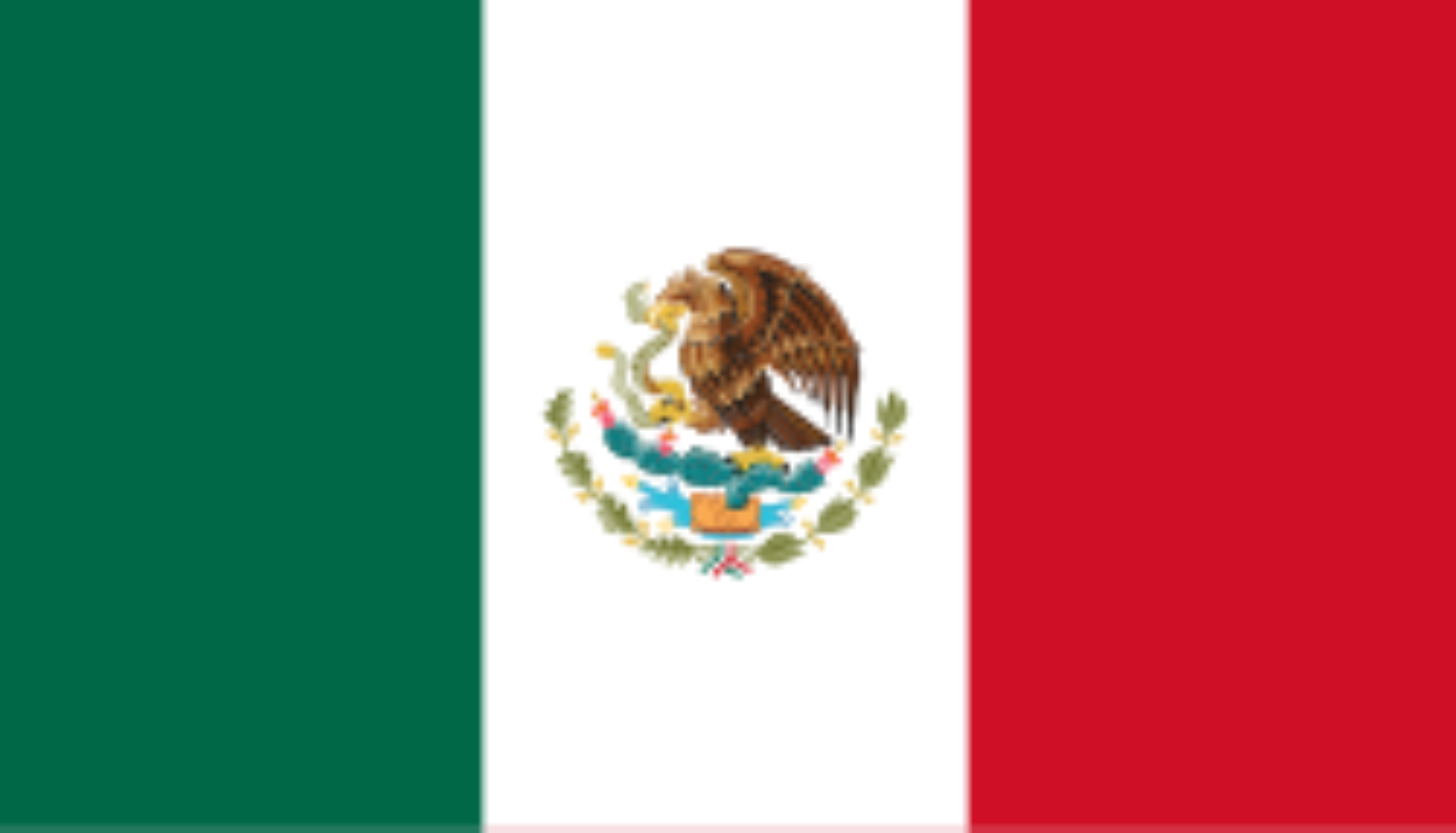
Known officially as the United Mexican States, Mexico is a country in the southern part of North America, bordered by the US, Pacific Ocean, Guatemala, Belize, the Caribbean Sea, and the Gulf of Mexico. The country features a diverse landscape that includes beaches, mountains, deserts, and rainforests (like the Sierra Madre mountain ranges, the Yucatán Peninsula, and the Baja California Peninsula), and it is known for its rich cultural heritage that blends Indigenous traditions with Spanish colonial influences, along with its cuisines (e.g.; tacos, tamales, and mole), music (mariachi) and vibrant festivals (Día de los Muertos; Day Of The Dead).
Its capital, Mexico City (Ciudad de México or CDMX), is the largest city in Mexico, and one of the most important cultural and financial centres in the Americas. Situated in the Valley of Mexico, and built on the ruins of Tenochtitlán; the ancient Aztec capital, by Spanish conquistadors in 1521, Mexico City is home to historic and modern landmarks like the Zócalo (main square), Palacio de Bellas Artes, Chapultepec Park, and the National Museum of Anthropology.
Due to the country's location on the Pacific Ring of Fire, earthquakes and volcanic eruptions are likely to happen, alongside hurricanes, cyclones, floods, droughts, wildfires and landslides.
In Quintana Roo (which includes Cancun, Playa del Carmen, etc.), speeding, parking infractions, running stop signs and other traffic violations can incur fines, but are often calculated in “days of minimum wage” or fixed peso amounts. For example, a speeding fine can range from $1,200 to $2,010 (~£48 - £81) depending on severity, and would double if the infraction caused an accident. There is a program being introduced in Cancun where tourists renting vehicles will receive a 'card' that allows forgiveness for two minor traffic offenses.
Other offences to keep in mind are;
If stopped by police (traffic or otherwise), ask to see a written citation ('boleta de infracción') rather than paying on the spot. Paying 'on the spot' often is not official and could be bribery. And if bringing electronics or expensive items while in Mexico, keep receipts, declare them if required, and follow customs rules.
The official language of Mexico is Spanish, but Nahuatl, Yucatec Maya, Mixtec, Zapotec, English, Spanglish and many more are also spoken.
Vehicles in Mexico drive on the right and overtake on the left. The legal driving age is 18, and the minimum age to rent is generally 21, with some rental companies allowing rentals from age 18. Drivers under 25 have to typically pay a 'young driver surcharge', and the availability of certain vehicle classes may also be restricted for younger renters. UK drivers need a 1926 International Driving Permit (IDP) to drive in Mexico, which is only valid for one year. A 1926 IDP can be obtained from participating PayPoint stores in the UK.
Advertised rental rates don't often include required insurance. You will get charged extra at pickup. Deposits can be large, especially if only minimal insurance is taken, and be cautious for extra costs on tolls, fuel, parking, sometimes airport fees, and possibly charges for late return or cross‑border travel (if allowed). Before driving off, inspect the car thoroughly, inside and out; take photos/videos especially of pre‑existing dents/scratches. This helps avoid false damage claims. And be aware of speed bumps (“topes”) which are common and often poorly marked. Hitting one too fast can damage vehicle.
Toll roads ('cuotas') tend to be safer, better maintained, less windy or slow, while free roads ('libres') may be more scenic but riskier. Police checkpoints are common in Mexico, especially on highways or near state borders. Be prepared to stop and show documentation. Stay alert when driving in less populated or remote areas where some roads may be in poor condition, or of risk of crime or robberies in isolated stretches, and avoid driving at night if possible due to poorly lit roads which can lead to safety risks in remote areas.
87 octane, 91+ octane and diesel are common in Mexico. Fuel stations are full-service where an attendant will approach your car, ask what type and how much fuel you want, and do it for you, and most stations are Pemex (government-run) or private brands. Always look at the pump meter to check it's zero before fuelling begins, stay alert when attendants pretend you gave them a smaller bill (e.g., you handed $500, but they say you gave them $50), and avoid distractions like when attendants try to scam you so that an extra person can commit theft to you and your vehicle.
The legal limit is 0.08%
All occupants must wear seatbelts
There are no national car seat laws in Mexico, but in Mexico City, children under 18 months must be in car seats in private vehicles.
Check out more of our Country Guides: